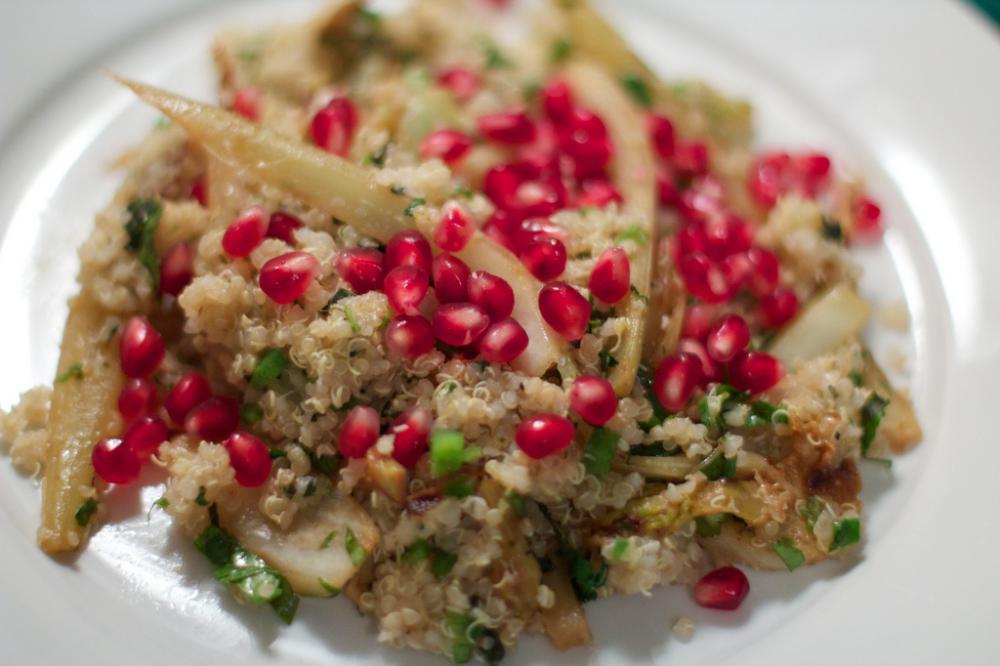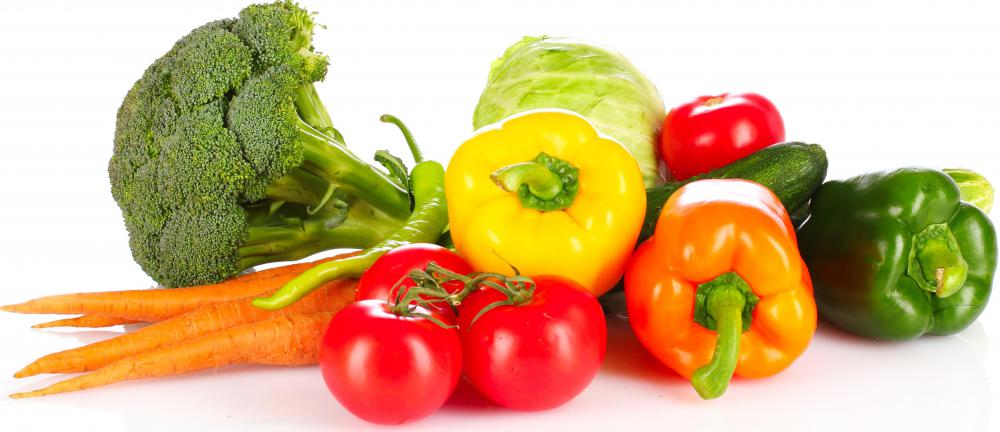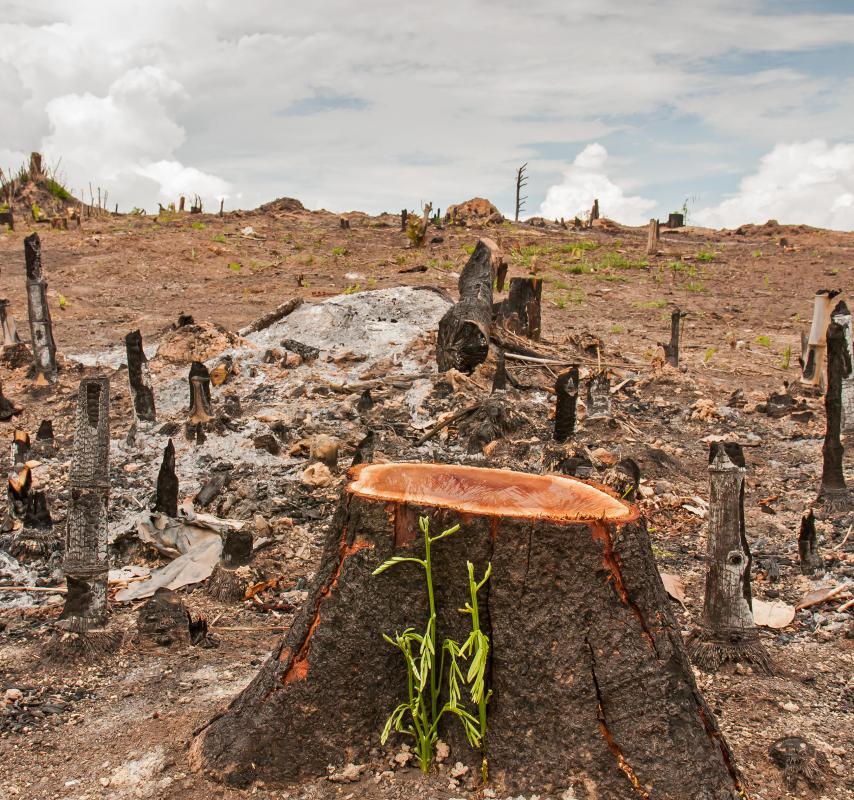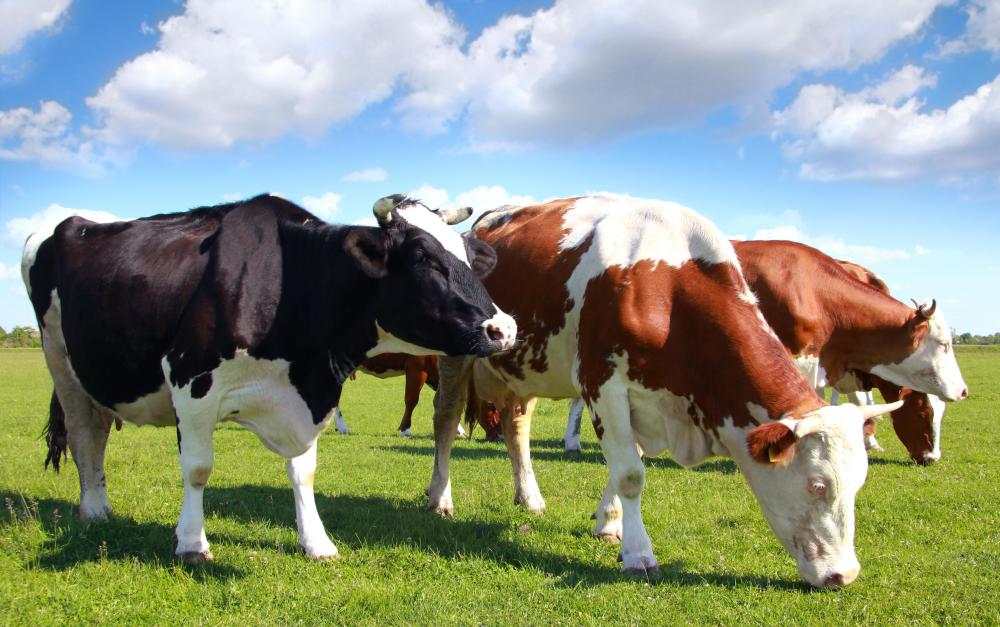At TheHealthBoard, we're committed to delivering accurate, trustworthy information. Our expert-authored content is rigorously fact-checked and sourced from credible authorities. Discover how we uphold the highest standards in providing you with reliable knowledge.
Should I Become a Vegetarian?
Studies show that approximately 400 million people worldwide consider themselves partial or total vegetarians. In the United States alone, polls have suggested that as many as 10% of the population identify as vegetarians. With the wide variety of food available in industrialized nations, eating meat has become a choice, rather than a necessity for nutrition. But whether or not you should give up meat or animal products is a personal question relating to your beliefs, your choices, and your needs. Understanding the arguments that people use to promote a meat-free lifestyle can help you decide if you should become a vegetarian.
One of the oldest arguments for vegetarianism is based on religious beliefs. Some religions practice vegetarianism as part of their spiritual doctrine. Eastern religions such as Hinduism and Buddhism all promote the concept of ahimsa or “nonviolence.” In Hinduism and Buddhism, vegetarianism symbolizes purity and nonviolence, two pillars of both religions. While not all followers of these religions are vegetarians, most doctrines agree that doing violence to animals or eating them incurs karma toward the animal. However the Hindu spiritual texts contain arguments from many sides, and vegetarianism among both the Hindu and Buddhist populations is largely personal choice.

For those who do not have strong religious beliefs, some in favor of a vegetarian lifestyle offer an argument based on the ethics of animal treatment. In 2008, many proclaimed shock at the release of videos showing meat factory workers torturing sick animals at a Chico, California plant. Studies suggest that this practice is hardly exceptional, as detailed in the popular book Fast Food Nation. Even if you believe killing animals is not an ethical question, evidence of animal cruelty and inhumane living conditions may cause you to consider opting out of participation in the meat industry.

If you are less concerned with animal treatment and more concerned with the ethical treatment of humans, you might be interested in studies showing that meat industry jobs are among the most dangerous in the world. Some experts consider meat plant workers to be very likely to face serious physical risks, corporate pressure to under-report injuries, and extremely poor working conditions. Studies also report that American meat companies sometimes hire illegal aliens to work at their plants, paying them below minimum wage, assigning them highly dangerous jobs, and usually not providing any health benefits at all.

Religious or ethical arguments for vegetarianism may be powerful, but they might be dismissed in a secular and relativistic world. While people may acknowledge tolerance for religious or ethical vegetarians, the reasons behind these motivations are rarely going to convince anyone to become a vegetarian who does not hold the same code of beliefs. However, several scientific arguments exist in support of vegetarianism.

In the 21st century, the world has come to a growing realization that our ecological resources are diminishing through overuse. Moreover, scientific research has shown repeatedly that destroying the local population of a species can negatively alter the environment around it. Biodiversity, or the existence of many life-forms, is usually a serious factor in the health of an ecosystem. Some evidence shows that the pollution and waste caused by the meat industry negatively affects both the local and global environment.

According to a 2006 study conducted by the United Nations, the livestock industry is one of the largest contributors to worldwide pollution and environmental destruction. Large-scale factory farms are extremely hazardous to ecological systems. Livestock practices are considered leading factors in global air, water and soil pollution. Some studies show that the livestock industry is the largest producer of greenhouse gases in the world, more harmful to the atmosphere than all of the cars in the world combined.

Livestock industries are considered to be a leading cause of deforestation and loss of biodiversity. Of the 35 areas in the world considered the most damaged by biodiversity loss, 23 are severely affected by livestock factors, according to Conservation International. The International Union for the Conservation of Nature and Natural Resources (IUCN) shows that a majority of endangered species are threatened at least in part by the livestock industry. With near universality, scientific studies show that the meat industry is a source of incredible destruction to the earth. For people concerned with helping the environment recover from the tremendous damage caused by humans, probably the single best thing you can do is to give up meat.
A human-interest argument may support vegetarianism. Millions of people die each year due to malnutrition and starvation. While world hunger cannot be solely placed on the back of the meat industry, evidence suggests that an increase in plant agriculture and a decrease in animal agriculture could have a tremendous effect on starvation levels, as currently 70% of all grain grown in the world goes to feed livestock rather than people.
Some studies show that 75% of grain exported to poor nations goes to feeding livestock, which are then exported back to industrial countries as meat. Instead of being used to combat hunger in the worst areas, the grain is simply returning to its place of origin in wealthy countries. With a properly maintained system in place, even a moderate decline in the meat industry could seriously impact starvation levels for the entire world. Efficiency and proper geographical distribution is key to enforcing this hunger-combating system, but many experts agree that a reduction in meat-eating could lead to the eventual end of world hunger.
Many people will suggest that health factors also support a partial or fully meatless lifestyle. Despite persistent rumors to the contrary, the American and Canadian Dietetic Associations have found vegetarian diets to be capable of supplying all essential nutrition for humans. Medical studies have suggested that a vegetarian lifestyle can help maintain a healthy weight level and aid weight loss efforts. Many medical experts suggest that vegetarians and vegans have considerably lower risks of heart disease, diabetes, dementia, osteoporosis, and many varieties of cancer.
If you are thinking of trying a vegetarian lifestyle, one question you must ask yourself is what restrictions you are willing to put on your diet. Partial vegetarians will generally avoid only red meat, while continuing to eat fish and chicken. Pesce-vegetarians eat fish, although they avoid meat from all land animals. Ovo-Lacto Vegetarians will eat eggs and dairy products as they are not meat, but rather animal products. Vegans eschew all animal products, including dairy, eggs and sometimes honey.
Vegetarianism is not always as simple as swearing off meat. Many products contain ingredients that are animal derived. Cheese is often made using animal rennet, which is traditionally made with the lining of a calf’s stomach. Marshmallows and many candy products contain gelatin, a substance created from animal bone marrow. Wine and sugar may be subject to filtration processes involving animal products. Even cosmetic products are not immune from animal ingredients; carmine, a popular red dye found in lipstick, eyeshadow and blush, comes from crushed beetles.
If you think you should become a vegetarian, try to set reasonable limits for yourself. While helping the environment and protecting animals from harm may sound great on paper, your reasons may occasionally pale in comparison to a perfectly toasted marshmallow. It is nearly impossible to completely avoid all animal ingredients, so give yourself credit for making an effort, even if you slip up.
For a variety of reasons, you may not be willing or able to give up meat. Some health conditions preclude vegetarianism or make it nearly impossible to get proper nutrition without meat. If you do not think you should become a vegetarian, it does not mean that there is nothing you can do to help change the meat industry, help the environment, or address ethical concerns. Even by changing one meal a day to a meatless variety, you can do some good. You can even adopt a “flexitarian” lifestyle, which mainly promotes a vegetarian diet but allows for meat-eating on special occasions or certain situations.
Consider purchasing your meat from small local farms rather than large corporate meat industry. Small farms are considered more likely to provide fair wages to workers and better living standards for animals. You will also be helping your community by encouraging local business efforts.
If information is released to the public detailing unsatisfactory animal or worker treatment at a meat plant, you may want to consider refusing to buy their products until the issue is resolved. While you may have no personal issues with eating meat, animal cruelty and human rights violations are illegal in most countries. Some argue that it is perfectly possible to be a meat-eater and still support the ethical treatment of animals and workers.
Many conservation agencies feature lists of fish and game animals that are considered over-fished or threatened. By avoiding these species as meal options, you will be helping to protect marine and terrestrial ecosystems and ensuring sustainable practices. While the species itself may not be considered endangered, remember that entire environments can collapse if a single species does not maintain sufficient population levels. To keep ecosystems in balance, it is important to maintain healthy population levels of all native plants and animals.
Whether you should or should not become a vegetarian depends entirely on your lifestyle and beliefs. What studies do clearly show is that the current animal agriculture industry is destructive to the planet and often promotes an unsustainable existence. Becoming a vegetarian is certainly not the only way to help the environment or fight for ethical treatment, but even giving up meat selectively or part-time can help change the world. However you choose to fight pollution, starvation, or unsustainable environmental practices, helping the planet in one way or another is a cause everyone can get behind.
AS FEATURED ON:
AS FEATURED ON:
















Discussion Comments
"Should I become a vegetarian?' What? Why ask someone else if you should make a life-change. It's your life. If you want to change something, change it. If you don't like it or it doesn't work for you, change back.
A vegetarian diet does have many health benefits, though. I have been vegetarian/vegan for 20-plus years. I have faced a lot of criticism for it, and a lot of backhanded 'questions'. I came to the conclusion that I didn't become vegetarian for anyone else, so my diet is no one's business. It's my life.
My decisions are by me, for me, and I need no input from anyone. If you feel that it would be a benefit to your health, do it. There are many versions of vegetarian. Some eat dairy. some eat seafood. I didn't eat dairy for years, but recently started again, and next week I might decide to stop eating it again. I actually started as an animal rights activist. I will never eat any beef, fish, pork or poultry again and only occasionally eat cheese and other dairy products but don't drink milk. I'm just saying this because it shows that There are different versions of vegetarian, and you can adjust to fit you.
Your life is as flexible as you make it. Don't let anyone try to influence you with fear or misinformation. Do what you feel is right for you.
To learn about becoming a vegetarian, join Vegetarian Newbie free newsletter.
I became a vegetarian about 1 1/2 years ago since my kid wanted to do it (I'm 39). Best thing I've ever done in my entire life. I've experienced so many benefits that it take would hours to list them all. (I love having beautiful skin for example.) I don't eat tofu lol! I kept waiting to get sick from all the 'deficiencies.' the opposite happened. Go for it!
This is a great page of info, which I plan to share with others!
Very nice article.
I decided to become Vegetarian as a first step.
I think we can have benefits and also we can reduce the amount of harming to our environment.
Later I may decide to become Vegan.
Thanks to author for such a detailed explanation from all point of view.-- -Abdul
I just wanted to say thank-you for this! It is very informative, and it has given me more reasons to feel comfortable with the decision I have made. This also helps me inform other people I know on the benefits of being a vegetarian.
A very informative and interesting article. I was with you up until the line about being able to be a meat-eater _and_ support the ethical treatment of animals. Before the aforementioned statement cropped up, the article had taken a subjectivist stance towards morality - if something is immoral, it is only so because the particular person in question believes it to be so. Fine. I wholeheartedly disagree (would this extend to murder? stealing? rape?), but as it goes - fine. However, then this line appeared, seemingly in fundamental contradiction both to the stance taken throughout, and to direct claims made in the article that whether or not killing (non-human) animals is wrong is a matter of personal preference.
Are moral claims entirely relative to the whims of their upholders? If so, does this extend to the right or wrongness of murder; robbery and rape? If not, what renders these objective moral claims where others (like the killing of non-human animals) are merely subjective? And if it's objectively moral to kill non-human animals (as the statement in question suggests) then what is the particular meta-ethical and normative argument in favor of such a claim (and has it met Peter Singer)?
Thanks very much for all that information. Very well written.
Reducing meat consumption will help the environment. But that doesn't mean you *have* to become a vegetarian. If many people just ate less meat, without giving it up altogether, it would greatly help the environment.
Post your comments